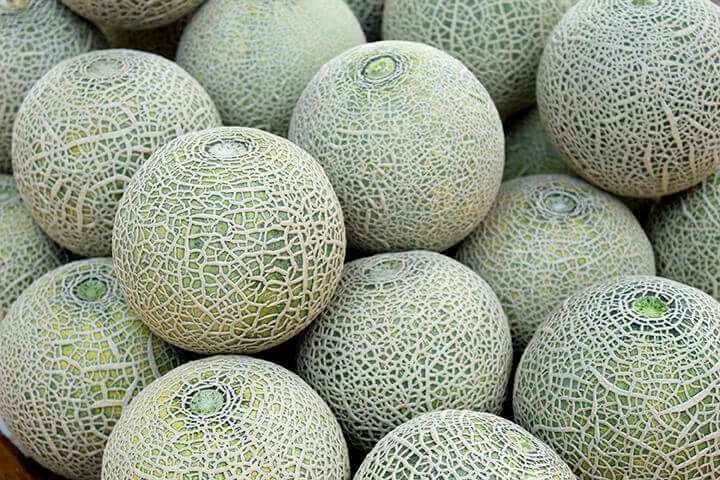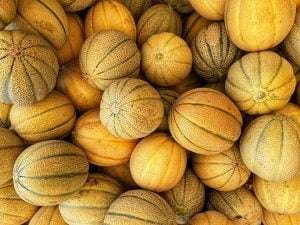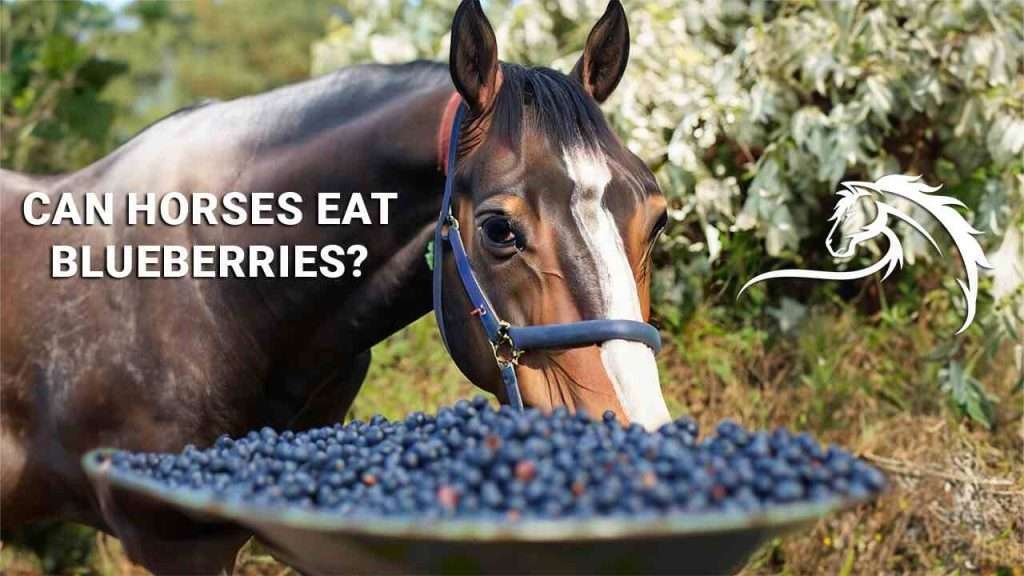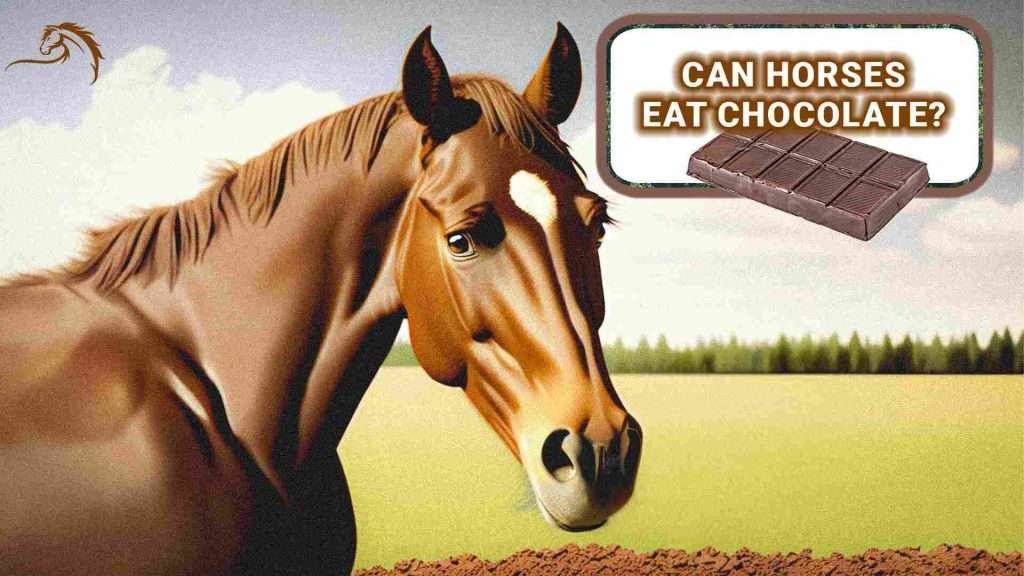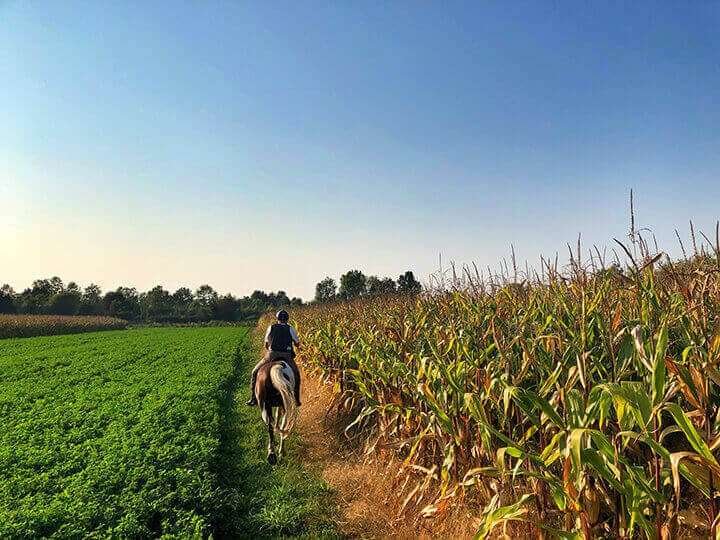Cantaloupe is a tasty and refreshing fruit, enjoyed by humans and horses alike. While horses are known for their love of apples and carrots, you may be curious about adding cantaloupe to their diet. In this article, we will discuss the nutritional value of cantaloupe, the health benefits it offers to horses, and the potential risks associated with feeding it to them. We will also provide guidelines for feeding cantaloupe to your horse safely.
Nutritional Value of Cantaloupe for Horses
 Cantaloupe is a good source of vitamins and minerals essential for your horse’s health. It contains beta carotene, which promotes good eye health, and potassium, a macro-mineral that supports skeletal and cell health. Cantaloupe is also rich in Vitamin C, an antioxidant that helps in the recovery of potential harm to muscles, organs, and tissue. It also supports a healthy coat, a functioning immune system, wound healing, and more. The fruit is an excellent source of folic acid, which is beneficial for the horse’s red blood cells, as it supports the preservation of healthy amounts of red blood cells, boosts haemoglobin levels, manages anaemia, and supports the growth and upkeep of new cells. Cantaloupe also contains B vitamins, including thiamin, riboflavin, and pyridoxine, essential for a horse’s metabolism.
Cantaloupe is a good source of vitamins and minerals essential for your horse’s health. It contains beta carotene, which promotes good eye health, and potassium, a macro-mineral that supports skeletal and cell health. Cantaloupe is also rich in Vitamin C, an antioxidant that helps in the recovery of potential harm to muscles, organs, and tissue. It also supports a healthy coat, a functioning immune system, wound healing, and more. The fruit is an excellent source of folic acid, which is beneficial for the horse’s red blood cells, as it supports the preservation of healthy amounts of red blood cells, boosts haemoglobin levels, manages anaemia, and supports the growth and upkeep of new cells. Cantaloupe also contains B vitamins, including thiamin, riboflavin, and pyridoxine, essential for a horse’s metabolism.
Health Benefits of Cantaloupe for Horses
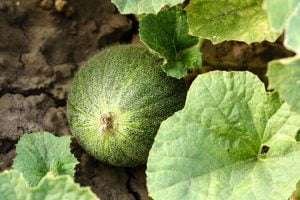
Cantaloupe is a nutritious fruit that provides many health benefits to horses. Some of the benefits are:
- Maintains a healthy quantity of protein: Riboflavin in cantaloupe contributes to maintaining a healthy quantity of protein while metabolizing the lipids.
- Encourages a calm demeanour: B vitamins may also encourage a calm demeanour in horses.
- Boosts the immune system: Cantaloupe is a great source of antioxidants, which are proven to boost your horse’s immune system and help shield it from a variety of ailments.
Risks of Feeding Cantaloupe to Horses
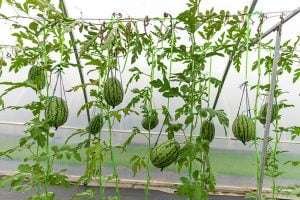 As with any food, there are risks associated with feeding cantaloupe to horses. Since the fruit contains a good amount of natural sugar, it is tasty but can cause problems if fed in excess. If you give your horse too much cantaloupe, it can lead to developing diabetes, laminitis, obesity, and other health problems due to high levels of sugar. Therefore, it is advised to feed cantaloupe in moderation or only as a treat once in a while. Horses with insulin resistance or who are on a low-sugar diet should not be fed cantaloupe. While cantaloupe is a low-calorie food, it can still upset your horse’s stomach if fed in excess.
As with any food, there are risks associated with feeding cantaloupe to horses. Since the fruit contains a good amount of natural sugar, it is tasty but can cause problems if fed in excess. If you give your horse too much cantaloupe, it can lead to developing diabetes, laminitis, obesity, and other health problems due to high levels of sugar. Therefore, it is advised to feed cantaloupe in moderation or only as a treat once in a while. Horses with insulin resistance or who are on a low-sugar diet should not be fed cantaloupe. While cantaloupe is a low-calorie food, it can still upset your horse’s stomach if fed in excess.
Cantaloupe contains 34 calories, making it a healthy treat for horses when fed in moderation.
Feeding Cantaloupe to Horses
When feeding cantaloupe to your horse, it is crucial to pay attention to its quantity and preparation. Since horses tend to gulp their food, it is better to cut the cantaloupe into small chunks to avoid the risk of them inhaling and choking on it. As with any new food, it is essential to introduce cantaloupe gradually and observe your horse’s reaction. If your horse has insulin resistance or is on a low-sugar diet, it is best to avoid feeding it cantaloupe.
Cantaloupe Flesh vs Rinds
The flesh of a cantaloupe is in no way harmful or toxic to horses. It is full of vital vitamins and minerals.
Conclusion
Cantaloupe is a nutritious and healthy treat that can be given to horses in moderation. It is full of essential vitamins and minerals that can promote good eye health, support a healthy coat, boost the immune system, and more. However, it is important to feed cantaloupe in moderation, as it contains a good amount of natural sugar, which can cause health problems if given in excess. 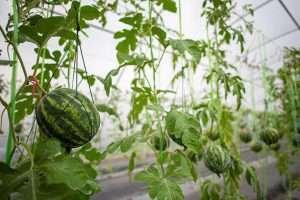 Additionally, it is crucial to feed only the flesh and avoid feeding the rinds, as they can contain moulds that can cause digestive issues and even lead to Laminitis. And, it is best to remove the seeds, as they can be a choking hazard for horses.
Additionally, it is crucial to feed only the flesh and avoid feeding the rinds, as they can contain moulds that can cause digestive issues and even lead to Laminitis. And, it is best to remove the seeds, as they can be a choking hazard for horses.
When feeding cantaloupe to your horse, it is important to cut it up into small chunks and monitor them closely to avoid the risk of choking. Overall, cantaloupe can be a great occasional treat for horses, but it should not be a substitute for their regular diet.
In the end, just like with any other treat, it is essential to feed cantaloupe to your horse in moderation and to monitor their response to it. If your horse has any underlying health conditions or dietary restrictions, it is important to consult with your veterinarian before feeding them cantaloupe or any other new food.

